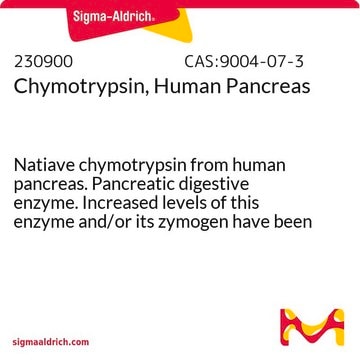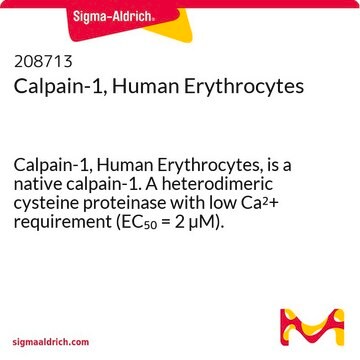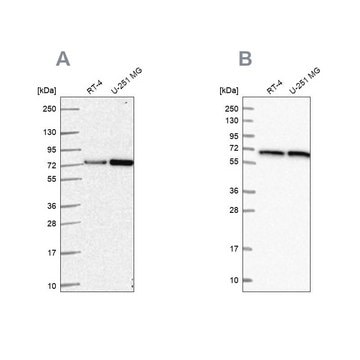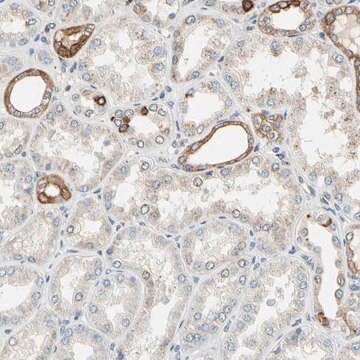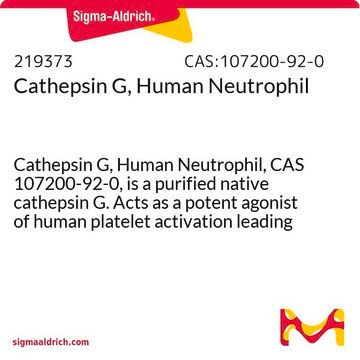ZRB2754
Anti-SETD8/KMT5A Antibody, clone 5L10 ZooMAb® Rabbit Monoclonal

recombinant, expressed in HEK 293 cells
Synonym(s):
N-lysine methyltransferase KMT5A;EC: 2.1.1.43;H4-K20-HMTase KMT5A;Histone-lysine N-methyltransferase KMT5A;Lysine N-methyltransferase 5A;Lysine-specific methylase 5A;PR/SET domain-containing protein 07;PR-Set7, PR/SET07, SET domain-containing protein 8
About This Item
Recommended Products
biological source
rabbit
Quality Level
recombinant
expressed in HEK 293 cells
conjugate
unconjugated
antibody form
purified antibody
antibody product type
primary antibodies
clone
5L10, recombinant monoclonal
description
5L10 Clone
product line
ZooMAb® learn more
form
lyophilized
mol wt
calculated mol wt 42.89 kDa
observed mol wt ~60 kDa
purified by
using Protein A
species reactivity
human, mouse
packaging
antibody small pack of 25 μL
greener alternative product characteristics
Waste Prevention
Designing Safer Chemicals
Design for Energy Efficiency
Learn more about the Principles of Green Chemistry.
enhanced validation
recombinant expression
Learn more about Antibody Enhanced Validation
sustainability
Greener Alternative Product
technique(s)
ELISA: suitable
affinity binding assay: suitable
immunocytochemistry: suitable
immunohistochemistry: suitable
western blot: suitable
isotype
IgG
epitope sequence
Internal
Protein ID accession no.
UniProt accession no.
greener alternative category
shipped in
ambient
storage temp.
2-8°C
target post-translational modification
unmodified
Gene Information
human ... KMT5A(387893)
General description
Specificity
Immunogen
Application
Evaluated by Immunohistochemistry (Paraffin) in human thyroid tissue sections.
Immunohistochemistry (Paraffin) Analysis: A 1:100 dilution of this antibody detected SETD8/KMT5A in human thyroid tissue sections.
Tested Applications
Affinity Binding Assay: A representative lot of this antibody bound SETD8/KMT5A protein fragment with a KD of 8.0 x 10-8 in an affinity binding assay.
Immunocytochemistry Analysis: A 1:100 dilution from a representative lot detected SETD8/KMT5A in A431, HeLa, HepG2, and NIH 3T3 cells.
Western Blotting Analysis (WB): A 1:1,000 dilution of this antibody detected SETD8/KMT5A in NIH3T3 cell lysate.
Western Blotting Analysis (WB): A 1:1,000 dilution of this antibody detected FLAG-tagged recombinant Human SETD8/KMT5A.
Enzyme Immunoassay Analysis (ELISA): A serial dilution of this antibody detected recombinant Human SETD8/KMT5A.
Note: Actual optimal working dilutions must be determined by end user as specimens, and experimental conditions may vary with the end user
Target description
Physical form
Reconstitution
Storage and Stability
Legal Information
Disclaimer
Not finding the right product?
Try our Product Selector Tool.
Storage Class Code
11 - Combustible Solids
WGK
WGK 1
Flash Point(F)
Not applicable
Flash Point(C)
Not applicable
Certificates of Analysis (COA)
Search for Certificates of Analysis (COA) by entering the products Lot/Batch Number. Lot and Batch Numbers can be found on a product’s label following the words ‘Lot’ or ‘Batch’.
Already Own This Product?
Find documentation for the products that you have recently purchased in the Document Library.
Our team of scientists has experience in all areas of research including Life Science, Material Science, Chemical Synthesis, Chromatography, Analytical and many others.
Contact Technical Service
